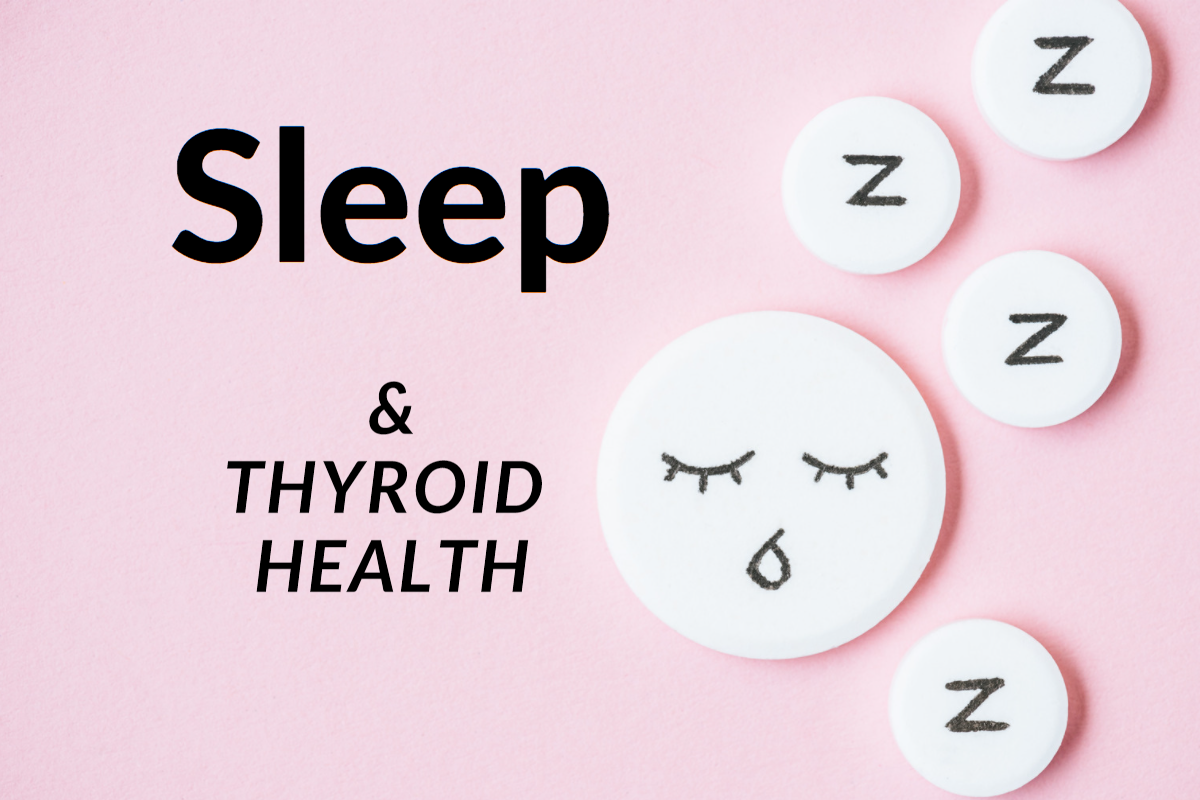
The thyroid is a small gland that produces hormones needed for regulating how the body uses energy. When these hormones are out of balance, they can impact multiple body functions, including sleep. The hypothalamus in the brain releases thyrotropin, which helps to control the body’s circadian rhythm. According to Sleep Foundation, “thyrotropin stimulates the thyroid to trigger the release of thyroid hormones. If the thyroid is overactive or underactive, this can interfere with thyrotropin production and your overall circadian rhythm.” When the sleep-wake cycle is affected, then numerous sleep issues can arise.
Hyperthyroidism and Sleep
Hyperthyroidism occurs when the thyroid gland overproduces hormones. Overactive thyroid affects sleep by causing frequent wake periods that stem from feeling nervous, irritable, or an increased need to urinate. It can also cause night sweats. These nighttime disruptions make it hard to fall asleep, stay asleep and often lead to insomnia. Hyperthyroidism tends to increase feelings of depression and anxiety, which can also hinder a good night’s rest.
Hypothyroidism and Sleep
Hypothyroidism develops when thyroid hormone production is too low. Underactive thyroid often disrupts sleep by causing intolerance to cold temperatures and muscle and joint pain. Hypothyroidism can also cause hypersomnia, which is excessive daytime sleepiness. Research from Frontiers in Endocrinology shows that while an underactive thyroid may not directly cause insomnia, the vast symptoms that come with it can certainly affect sleep quality.
Follow Up with Your Doctor
Most thyroid-related sleep disruptions occur when thyroid conditions are left untreated. It is necessary to follow up with your doctor if you are experiencing any of these sleep problems or other symptoms of thyroid dysfunction. Symptoms can include unexpected weight loss or gain, change in hair and skin, and differences in appetite or bowel movements. Create a plan of action with your doctor to manage your thyroid function. Changes in sleep habits are much easier to control when thyroid issues are properly treated, and hormones stay in better balance.
Tips for Better Sleep
In addition to working alongside your doctor to manage your thyroid condition, there are a few things you can do to promote better sleep. Start by creating a good sleep environment. This would include a comfortable sleeping temperature, minimal or calm noises, and darker lighting. Next, consider a sleep routine to help relax your body and prepare it for sleep. A routine could consist of light music, reading, stretching, and turning off screens about an hour before bedtime. Try to stick to a consistent bedtime as well. Finally, think about limiting caffeine, alcohol, and large meals before sleep.
The combination of teamwork with your doctor and being proactive with your bedtime routine can go a long way in managing your sleep habits and providing a restful night.
Continue reading January 2022 Newsletter: Thyroid Health
Written by BWS Lead Health Coach- Kelly Schlather, BS, ASCM – CEP
